Business Schools with an Outstanding Faculty in Taxation
B-School Search
For the latest academic year, we have over 250 schools in our BSchools.org database and those that advertise with us are labeled “sponsor”. When you click on a sponsoring school or program, or fill out a form to request information from a sponsoring school, we may earn a commission. View our advertising disclosure for more details.
Regardless of size, an organization needs to deal with matters of taxation and regulation. Taxation professionals help companies deal with changes in tax policy and reforms, ensure that their current practices are tax compliance, and help them make lawful business plans.
Graduate taxation programs, such as a master of business administration (MBA) with a concentration in tax or a master of science in taxation (MST), can help students prepare for a career in the field. Some universities also offer dual MBA/MST degree programs for students who wish to develop corporate expertise as well as an understanding of taxation.
Taxation programs generally comprise 36 to 54 credits, which can be completed in two years of full-time study and up to six years of part-time study. Students pursuing an MBA with a concentration in tax gain fundamental knowledge of business principles as well as a solid understanding of the technical aspects of taxation, while those in a master of science in taxation learn about federal taxation, tax research, and tax practice and procedures in more depth.
The following guide covers several exceptional taxation MBA professors, from five notable schools.
Fordham University, Gabelli School of Business
Fordham University, founded in 1841, provides top-notch undergraduate, graduate, and professional education. The school has graduated students who have gone on to become U.S. senators, theologians, governors and ambassadors, directors of the CIA, and Academy Award-winning actors. The university aims for excellence in research as well as in teaching.
The Gabelli School of Business at Fordham University provides several options for aspiring tax specialists. The master’s degrees in taxation and accounting can be completed in one year of full-time study or over two years or more part-time. Students learn about local, national, and international tax, as well as accounting and communications. The MBA program offers five-course concentrations that may be of interest to tax professionals; these include accounting and public accountancy. The MBA can be further specialized through a discipline-specific or cross-functional secondary concentration, such as accounting, corporate compliance, and international business. Finally, the school’s joint MBA/MST program combines the MBA in public accounting and the MS in taxation and is ideal for students who wish to learn about both fields.
-
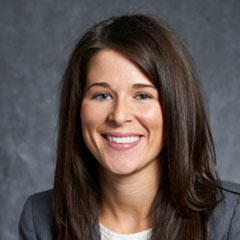
Danielle H. Green, PhD
Fordham UniversityDr. Danielle Green is an assistant professor of accounting and taxation in the Gabelli School of Business. Before joining Fordham University, she served as an assistant professor of accounting at Baruch College CUNY, and she has extensive professional experience working at both a Big Four company and a local accounting group.
Dr. Green’s work covers how firms plan their taxes as well as the consequences of those choices. Additionally, she’s interested in corporate disclosures and accounting practices for income taxes. Her academic research has been published in Contemporary Accounting Research.
Dr. Green earned her PhD from the University of Connecticut, her master’s in education from the State University of New York at Buffalo, and her bachelor’s from the State University of New York at Geneseo.
St. John’s University, Peter J. Tobin College of Business
St. John’s University was founded in 1870 with the goal of helping students fulfill their professional and academic goals. St. John’s provides students with exceptional services, such as career advising, internship placement, and job readiness skill training.
The Peter J. Tobin College of Business MBA program offers several specialty tracks, including one in taxation. The 36-credit MBA can be completed on-campus or online and provides students with a wide range of business knowledge along with the abilities to make cross-functional decisions. The taxation track dives deeper into the field with course options in tax planning, corporate distributions, liquidations, and reorganizations, international taxation, state and local income taxation, real estate, and many more. Students focus on the technical aspects of taxation preparing them for careers in public accounting or corporate management.
-
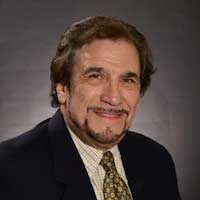
Patrick R. Colabella, EdD
St. John’s UniversityDr. Patrick R. Colabella is an associate professor in the Department of Accountancy at St. John’s University, where he teaches global financial reporting, tax accounting, the fundamentals of accounting, and partnerships and partners. He also serves as chair of the Global Institute for Taxation.
Dr. Colabella’s research foci include global taxation, socio-economic philosophies and ideologies of government, and public finance. He has authored many articles and scholarly papers on tax reform, bank accounting, and finance in peer-reviewed journals, such as the CPA Journal. He also has won many awards for his work, such as the Excellence in Education Award and a Teacher of the Year Honor.
Dr. Colabella completed his doctorate in education in instructional leadership at St. John’s, which is also where he earned his bachelor’s degree in accounting. He also holds an MBA in taxation from Pace University.
-
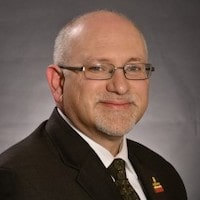
Biagio Pilato, LLM, JD
St. John’s UniversityDr. Biagio Pilato is an associate professor in the accountancy department at St. John’s University, where he teaches fraud examination, accounting for lawyers, business tax planning, and advanced federal income tax. He is also a licensed attorney, certified public accountant, and certified fraud examiner.
Dr. Pilato’s research examines retirement planning, accounting education, and tax policy, as well as legal developments with respect to business entities. He authored a research paper on the effectiveness of the case study method to teach accounting principals to students. His current interests include individual taxation, accounting principles, real estate law fraud examination, and taxation of business entities.
Dr. Pilato holds a master of laws (LLM) in law-taxation from New York Law School, a Juris Doctor (JD) in law and a bachelor’s degree in accounting from St. John’s University.
Suffolk University, Sawyer Business School
Located in Boston, Suffolk University offers students access to the various opportunities that the city has to offer. Along with top-notch education, the school provides students with access to the city’s various museums, restaurants, internships, and co-ops. The school is renowned for its global management, business, legal, and entrepreneurship programs. Notable alumni include U.S. mayors, federal and state judges, and Congress members.
The Sawyer Business School provides its students with business knowledge, helps them develop real-world skills, and prepares them to become leaders in their chosen profession. The most interesting programs to aspiring tax professionals include specialized master’s programs in taxation or accounting, an MBA with a concentration in accounting principles or forensic accounting, and several dual degree options: an MBA and master’s in accounting, an MBA and master’s in taxation, an MBA and Juris Doctor, and a dual master’s in accounting and taxation. The joint MBA and master’s in taxation program offers a blend of corporate strategic planning and taxation and prepares students to make an impact in today’s fast-growing business environment to become future leaders.
-
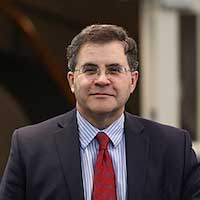
James Angelini, PhD
Suffolk UniversityDr. James Angelini is an associate professor of accounting and taxation and the director of the taxation master’s program at Suffolk University. He is a certified public accountant.
Dr. Angelini’s areas of expertise include federal tax policy and state tax policy. He has published his research in prominent journals such as the Journal of State Taxation, the Business Law Review, State Tax Notes, the Journal of the American Taxation Association, and the Municipal Finance Journal. He has written about various topics such as federal marginal tax rate change, electronic commerce and sales taxes, regional variations in tax expenditure, and the impact of stated interest rates on tax benefits.
Dr. Angelini has a doctorate in accounting and taxation from the University of Houston, and an MBA in taxation and bachelor’s degree in accounting from Babson College.
University of Hartford, Barney School of Business
Accredited by the New England Association of Schools and Colleges, the University of Hartford offers more than 100 programs in varied fields that include engineering and technology, business, health professions, humanities, and arts.
The Barney School of Business offers many options for those seeking to advance their careers in taxation. The master’s degree in accounting and taxation can be completed in as few as seven months and fulfills the 150-hour CPA licensing requirement. Professionals with more work experience may be interested in completing a certificate program in either accounting or taxation, also offered by the school. Furthermore, those wishing to learn more about the corporate world can enroll in the school’s dual master’s in accounting and taxation and MBA degree program. The curriculum for this dual program is broken down into three parts: common accounting courses, MBA courses, and either taxation or financial and assurance services courses, depending on each student’s interests.
-

Barbara Lamberton, PhD
University of HartfordDr. Barbara Lamberton serves as an associate professor at the Barney College of Business in the Department of Accounting and Taxation. She is a widely published scholar with works appearing in the Journal of Information Systems, the CPA Journal, and Issues in Accounting Education. Her research interests include technology, ethics, and individual differences in accounting settings.
Dr. Lamberton holds a BA in sociology from Nazareth College, an MBA in accounting from the Rochester Institute of Technology, and a PhD in business administration from Michigan State University.
University of Southern California, Marshall School of Business
The University of Southern California is California’s oldest private research university. The school offers a diverse educational experience through 21 academic schools and units, world-class resources, academic opportunities, and a vibrant campus life.
The USC Marshall School of Business, founded in 1920, provides its students with real-world knowledge and prepares them to become leaders through its graduate and undergraduate programs. Relevant programs to tax specialists include an MBA with accounting electives, a master of accounting, a master of accounting with an emphasis on data and analytics, and a master of business taxation. The latter program can be completed on campus, online, or in a combination of the two. It is designed to help students develop a broad range knowledge of taxation and research techniques that are essential for a successful career in the field. The curriculum includes courses in tax theory and ethics, taxation of partnerships and S-corporations, and the taxation of corporations.
-
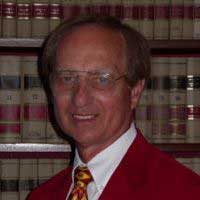
Jack Barcal, JD
University of Southern CaliforniaJack Barcal is an associate professor of accounting at the University of Southern California. He teaches tax theory and ethics, federal estate and gift taxes, family wealth preservation, and internship in business.
Professor Barcal’s research efforts focus on taxation, probate, estates and wills, estate planning, tax law, and trusts. He is a member of several professional organizations such as the American Taxation Association and the American Accounting Association. His work has been published in the Journal of Taxation, the Los Angeles County Bar Journal, and Estate Planning. He is the recipient of a Teaching Excellence Award and Distinguished Leadership and Service Award.
Professor Barcal obtained his JD from Stanford University and his bachelor of science in accounting from DePaul University.
-
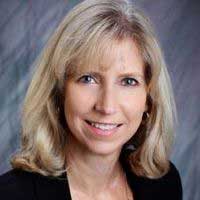
Patricia Mills, LLM, JD
University of Southern CaliforniaDr. Patricia Mills is a professor of clinical accounting and academic director of the master of business taxation program at USC. She teaches courses on federal tax research and practice, taxation of partnerships and S corporations, advanced partnership taxation, taxation of individuals, and taxation of property transactions.
Currently, Dr. Mills’s research centers around real estate, individual tax issues, and partnership. Her work has been published in the Journal of Real Estate Taxation and the California Real Estate Journal. She is the recipient of the USC Mellon Mentoring Award and the Leventhal Diamond Teaching Award.
Dr. Mills completed her LLM in taxation at the University of San Diego and her JD and bachelor’s degree in sociology at Syracuse University.
Methodology
We used the following criteria to select professors for inclusion in this list:
- University affiliation: Professors must be actively teaching at an accredited university in the U.S.
- Publication: They have published their research in influential peer-reviewed journals and presented it at industry conferences.
- Institutional and peer recognition: They have received awards, distinguished titles, notable grants, and research funding.
- Professional commitment: They have built curricula and programs, become leaders in professional organizations, volunteered extensively in their communities, and/or consulted for companies in the field.
